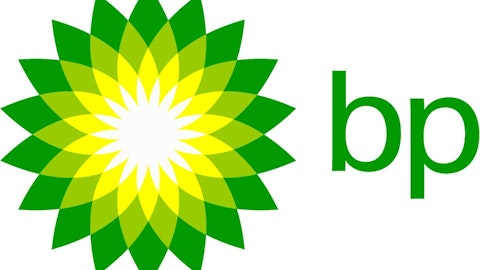
You may be somewhat confused by my indication that McClendon is almost gone from the company. It seems that the terms of his non-competition clause in his employment agreement now provides him with free use of Chesapeake Energy Corporation (NYSE:CHK)’s aircraft through 2016. How in the world did the board let that one fly?
As you know, and without gratuitously invoking history, McClendon was essentially forced out of the company to which he essentially gave birth. The departure occurred on April 1 — an appropriate date, given the goings on during his last years at the company.
A fracking hall of fame?
To their credit, however, in nearly a quarter-century, McClendon and his founding partner, Tom Ward, now the CEO of SandRidge Energy Inc. (NYSE:SD), built an enviable entity in Chesapeake Energy Corporation (NYSE:CHK). Despite McClendon’s more recent travails, he and his company were at or near the creation of such major unconventional plays as the Barnett, Haynesville, Marcellus, Utica, and the exploding Eagle Ford, among others.
In fact, were something of a shale drilling and production hall of fame to be created, two names would be de rigueur for immediate inclusion: McClendon and George Mitchell. The latter, through his Houston-based — and now Devon-owned — company, Mitchell Energy, relentlessly propagated the notion that applying hydraulic fracturing to the massive layers of shale rock spread across the U.S. would yield a bounty of natural gas.
Analysts in a waiting mode
At this stage, and to the extent it’s even moderately meaningful, the analysts don’t expect Chesapeake Energy Corporation (NYSE:CHK)‘s quarter to be a bust. Indeed, their consensus is for the per-share number to come in at or near $0.25, up from $0.18 a year ago. Revenues are expected to reach about $2.8 billion, compared with slightly more than $2.4 billion for the comparable quarter of 2012.
Clearly, however, the vast majority of the Wall Street seers who spend their time checking on Chesapeake Energy Corporation (NYSE:CHK) and other independent producers, are agnostic regarding the company’s ability to execute a recovery from the double trouble created by McClendon’s shenanigans and a stretch of moribund natural gas prices. Of the 31 analysts with ratings on the company, 19, or a sizable 60%, currently are sporting hold ratings. Chesapeake Energy Corporation (NYSE:CHK) clearly has its intrepid believers, however, with 10 analysts calling it a buy or better.
But now, even with gas prices levitating, the key questions concerning the company involve:
news of assets sales, a chosen elixir for bringing relief to its groaning balance sheet
progress in naming a CEO replacement for McClendon
basic changes being conjured up by the interim leaders relative to strategic and operating approaches
The first and third of these queries coalesce at the point where one considers that, at the conclusion of the fourth quarter of last year, the company’s debt was a whopping $12.2 billion. That made for a debt-to-capitalization ratio north of 40%. Another obvious ministration for this condition, in addition to selling off properties, is a reining in of drilling activity.
A couple of sales
As to the second issue, we already know that earlier this month 57,275 net acres and 11 producing wells in the Woodbine and Eagle Ford were sold to privately held Energy & Exploration Partners of Fort Worth. As a Texan, I find it noteworthy that the assets involved included the Woodbine sandstone, the Eagle Ford Shale, and Lower Cretaceous formations with such readily identifiable Lone Star monikers as the Buda, Georgetown, Edwards, and Glen Rose.
Earlier, the company had pocketed $75.2 million by selling to Gastar Exploration Ltd (NYSEMKT:GST) leasehold acreage in Oklahoma’s Kingfisher and Canadian counties. It’ll obviously require a passel of sales of that magnitude to shore up an overweight balance sheet.
As to the company’s leadership and direction, last month it was announced that an “Office of the Chairman” has been formed at Chesapeake. The new entity is made up of Archie Dunham, the non-executive chairman of the board, Steven Dixon, the acting chief executive officer (and continuing chief operating officer), and CFO Domenic Dell’Osso. The company’s board of directors is continuing to work with Heidrick & Struggles in the search for a permanent CEO-replacement for McClendon.
A rising stock in the offing?
It shouldn’t be overlooked that Chesapeake Energy Corporation (NYSE:CHK) accumulated its imprudent debt level by rounding up some of the nation’s most attractive shale acreage. On that basis, amid rising natural gas prices, the nation’s second-largest gas producer — after Exxon Mobil Corporation (NYSE:XOM) — could see its literal and figurative stock rise. I admittedly make that statement as one who has a position in the company.
The article Chesapeake’s Now Just a Plane Company for McClendon originally appeared on Fool.com and is written by David Smith.
Motley Fool contributor David Smith owns shares of Chesapeake Energy. The Motley Fool owns shares of Devon Energy (NYSE:DVN) and has the following options: Long Jan 2014 $20 Calls on Chesapeake Energy, Long Jan 2014 $30 Calls on Chesapeake Energy, and Short Jan 2014 $15 Puts on Chesapeake Energy.
Copyright © 1995 – 2013 The Motley Fool, LLC. All rights reserved. The Motley Fool has a disclosure policy.



